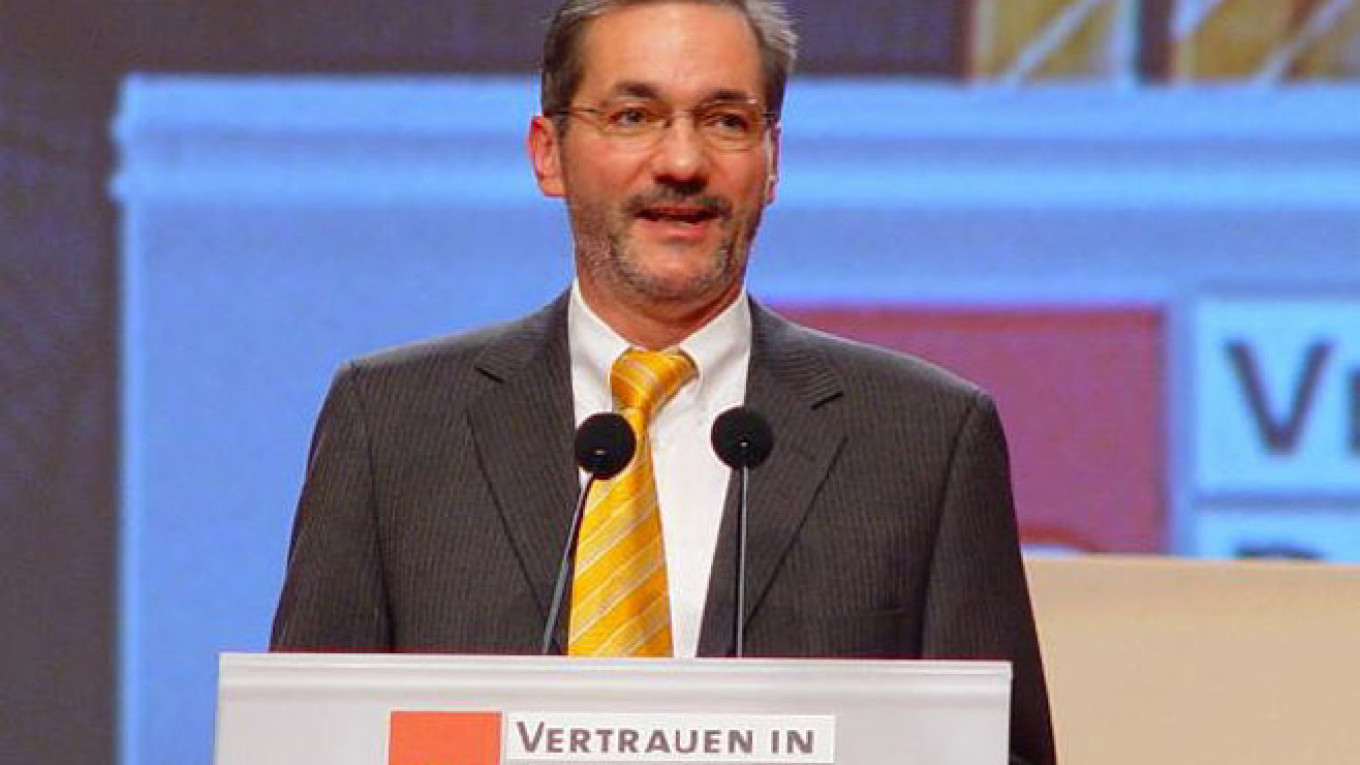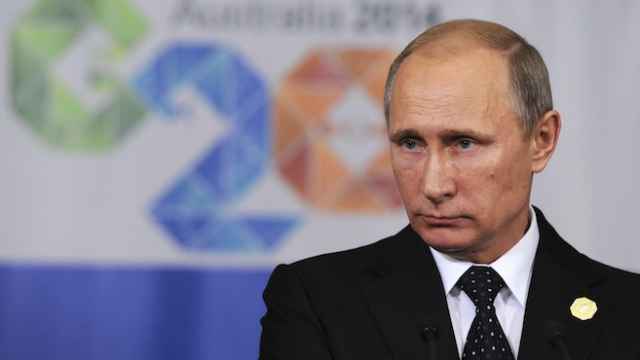A senior German politician drew criticism on Wednesday for suggesting the West should recognize Russia's annexation of Crimea to save face for President Vladimir Putin.
Former state premier Matthias Platzeck, chairman of the German-Russian Forum business lobby and erstwhile Social Democrat, or SPD, chief, is the first high-ranking German to say the West should endorse the annexation as a way to help resolve the Ukraine crisis.
Foreign Minister Frank-Walter Steinmeier rejected the notion.
"I've often made public my view that it is a clear violation of law which we cannot endorse nor recognize," said Steinmeier, a close friend of party ally of Platzeck.
"We must stand by our common European position which is that we don't accept what has happened and we don't accept Europe's borders being changed again 70 years after the war."
Platzeck, 60, told the Passauer Neue Presse newspaper: "A wise man changes his mind — a fool never will...The annexation of Crimea must be retroactively arranged under international law so that it's acceptable for everyone."
Platzeck, Brandenburg's popular state premier from 2002 to 2013, struck a nerve in eastern Germany where there is far less support for sanctions against Russia than in the West.
"We have to find a resolution so that Putin won't walk off the field as the loser," said Platzeck, whose career was nurtured by ex-Chancellor Gerhard Schroeder — a friend of Putin. He said areas held by separatists will never be part of Ukraine.
Russia says the annexation of Crimea reflected the will of majority ethnic Russians on the peninsula concerned by the toppling of a Kremlin-oriented president in Kiev. The action was followed by a pro-Russian rebellion in eastern Ukraine that the West says has been inspired by Moscow. Russia denies this.
Ukrainian ambassador Wassili Chiminez told the Tagesspiegel daily he was alarmed at the idea of Platzeck campaigning for recognition of the March annexation of Crimea.
Wolfgang Ischinger, chairman of the Munich security conference and a former deputy foreign minister, said it would be a mistake to cave in to Russia on Crimea.
"It would be an admission of failure by the West and the European Union," Ischinger told Deutschlandfunk radio. "We can't cut a deal that would disadvantage a third party."
A Message from The Moscow Times:
Dear readers,
We are facing unprecedented challenges. Russia's Prosecutor General's Office has designated The Moscow Times as an "undesirable" organization, criminalizing our work and putting our staff at risk of prosecution. This follows our earlier unjust labeling as a "foreign agent."
These actions are direct attempts to silence independent journalism in Russia. The authorities claim our work "discredits the decisions of the Russian leadership." We see things differently: we strive to provide accurate, unbiased reporting on Russia.
We, the journalists of The Moscow Times, refuse to be silenced. But to continue our work, we need your help.
Your support, no matter how small, makes a world of difference. If you can, please support us monthly starting from just $2. It's quick to set up, and every contribution makes a significant impact.
By supporting The Moscow Times, you're defending open, independent journalism in the face of repression. Thank you for standing with us.
Remind me later.






